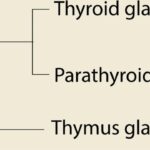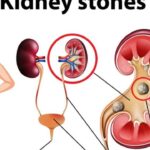Today, most people with kidney stones are contemplating using CBD as an alternative medicine for managing the excruciating pain. But the question remains: Would CBD help with the pain of a kidney stone? To understand this, we will discuss how CBD functions in the human body and other things you need to know.
CBD also known as cannabidiol, it has some healing attibutes in treating pain. CBD is a chemical compound extracted from the cannabis plant, mostly administered as a non-pharmacological remedy for pain. Below, we will briefly discuss CBD and whether it can help to treat pain.
CBD influences the body’s endocannabinoid system, a network of receptors that helps maintain balance and pain sensation. Through this interaction, CBD can decrease inflammation and relieve pain within this system.
CBD health benefits
Research suggests that CBD is useful in treating different types of long-term pain like arthritis, multiple sclerosis, and fibromyalgia. CBD has health benefits with no psychoactivity, unlike conventional marijuana.
However, unlike THC (tetrahydrocannabinol), which is another component of cannabis, CBD does not have that effect. This makes CBD safe and efficient for people who need some relief without having any euphoric effects of marijuana.
Apart from this, CBD has other health benefits that can help reduce pain and inflammation in the body. In addition, CBD comes in different forms, such as oils, tinctures, capsules, and topical creams; therefore, users can easily buy this product from a drugstore.
Cannabidiol is not toxic, making it suitable for people who require natural pain relief. It is imperative to state that even though CBD helps in alleviating pain, before you take any CBD dose, speak with your urologist/doctor.
How CBD works in the body
CBD is a chemical compound extracted from various parts of the marijuana plant and has received much attention in the recent past due to its medical benefits. But how exactly does CBD work in the body? CBD can be used in different ways, such as ingestion, inhalation, or rubbing on the affected area. Once it gets into your system, it works hand in hand with the endocannabinoid system of the body.
The endocannabinoid system is a signaling network of receptors. Located in the CNS and peripheral tissues, it modulates major physiological processes, like mood, feeding, pain-sensing, and inflammation.
CBD works with two primary receptors in the endocannabinoid system: CB1 and CB2 receptors. While CB1 receptors are located in the brain and nervous system, CB2 receptors are present in many tissues not restricted to the immune system. CBD can also influence the activity of neurotransmitters associated with these receptors, thus managing the body’s functions.
There are various possible methods through which CBD works, but one of the most important is to reduce the rate at which the body breaks down anandamide, a neurotransmitter also known as the ‘bliss molecule.’ CBD is also capable of raising levels of anandamide in our bodies; this has the effect of leading to increased feelings of well-being.
Besides acting on the endocannabinoid system in the body, CBD also exerts its impact on other neurotransmitter systems like serotonin and dopamine. Serotonin balances moods and serotonin, while dopamine is for the flow of motivation in the brain.
CBD also influences the levels of these neurotransmitters and acts as a treatment for several forms of anxiety, depression, and other disorders.
It also has anti-inflammatory and analgesic effects from CBD. The above list is not exhaustive, and there is still much more that can be said about CBD.
In addition, there is some evidence from clinical trials to suggest that it can help alleviate muscle spasticity in diseases like multiple sclerosis.
Also, CBD is neuroprotective, which means it increases the protection of the brain and produces a therapeutic effect on the neurons.
Some of the clinical research suggests that CBD may slow down the progression of neurodegenerative diseases like Alzheimer’s and Parkinson’s because it protects the brain from inflammation and oxidative stress.
However, it is pertinent to point out that although CBD is effective in treating numerous diseases, there are still many areas that need to be explored to understand the exact workings of CBD and its therapeutic usefulness.
Moreover, it is also vital to remember that reactions to cannabidiol could be different with every person; you should always consult a doctor before starting any CBD treatment.
Would CBD help with the pain of a kidney stone?
Kidney stones are small deposits formed in the kidneys and can cause excruciating pain when they move through the urinary system. Recently, individuals with renal disorders such as kidney stones have contemplated using CBD. But would CBD help the unbearable pain of passing a kidney stone? Well, the answer is yes.
The pain is severe, which has seen many patients looking for relief in any way possible, through prescription drugs or otherwise. But is CBD bad for the kidneys?
CBD is an acronym for cannabidiol, which is a type of cannabis compound that is considered a potential pain reliever. It engages with the endocannabinoid system of the human body that helps control pain, among other roles. This means that by acting on the receptors, CBD can help alleviate the severity and the pain that come with kidney stones.
In addition, CBD has an anticyclonic effect, so it is capable of relaxing the muscles. Kidney stone pain can be due to the contraction of the ureter to pass on the stone to the outside of the body. In terms of alleviating the sharp, stabbing pain that accompanies a kidney stone. CBD can assist in easing muscle tension and dispersing spasms.
Read also: What Tea Is Good For Kidney Cleanse?
Potential risks and considerations
If you have severe kidney stone pain that you can hardly bear, then you may be wondering if you can use CBD. CBD is a chemical that exists in the cannabis plant and is becoming increasingly popular for its potential to provide relief from pain. But does CBD ease the pain that comes with a kidney stone?
To the best of my knowledge, there are not enough studies focusing on the efficacy of CBD relating to kidney stone pain, but some research studies note that CBD could help with the pain of a kidney stone. CBD acts through the modulation of the endocannabinoid system in the body, as this is involved with the regulation of pain.
However, CBD is not a cure for kidney stones and is not recommended to replace medical treatment. If a kidney stone is not treated, it may lead to complications such as acute kidney injury, chronic kidney disease, or urinary tract infection, so one needs to consult a doctor if they have a kidney stone.
Read also: Does The Thymus Gland Sit Atop Each Kidney?
Recommendations
There are a few risks and things to consider when using CBD for kidney stone pain. Regardless, it is highly advisable to seek advice from a doctor before you use CBD, especially for those with health complications or on other medications.
One of the risks of using CBD for kidney stone pain is the interaction it has with other medications. So, to use CBD, extreme caution should be taken when combining CBD with other drugs. This is because such antiepileptic drugs can reduce the efficacy of these medicines.
Also, to avoid any complications, one should consider credible CBD products to avoid adverse effects. If possible, select products that have undergone potency and purity tests by an independent laboratory and avoid products that contain impurities or other substances.
When it comes to treating the pain associated with kidney stones with CBD, there are a few factors to take into account about dosage and a way to take it.
CBD is readily available in different forms, such as oils, capsules, and even edibles, and the right amount can be a result of the weight, metabolism, and magnitude of the pain to the users. One should begin by using a small quantity and then increase the portions as advised by a doctor.
It is also a necessity to know the possible side effects of CBD which include dry mouth, feeling dizzy or relaxed, or changes in appetite. Even though CBD appears to be safe and well tolerated, there were side effects reported by some of the participants.
However, there are some side effects associated with CBD use, and if you happen to experience any of these negative side effects while using CBD, see your doctor.
CBD could help reduce the pain associated with kidney stones. Thanks to the anti-inflammatory properties. CBD reduces swelling and pain in the affected area or the whole body in general. Furthermore, CBD offers natural pain relief and calming properties. This can be very useful when passing a kidney stone.
But as with any new treatment, it is always advisable to seek professional advice from your doctor. Interested in using CBD for kidney stone pain relief? Talk things over with your doctor and look for reliable CBD brands. Do not let chronic pain rule your life anymore; take charge today.



